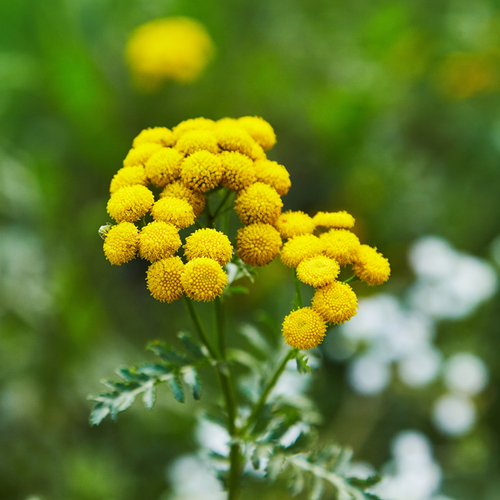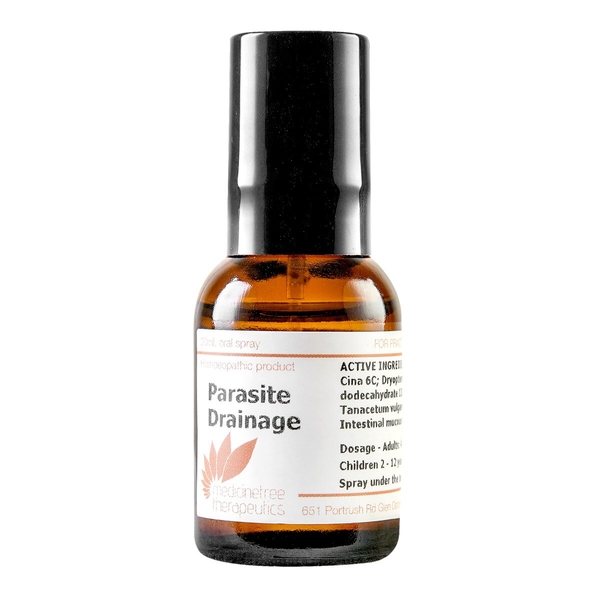
Tansy
Scientific names: Tanacetum vulgare, Chrysanthemum vulgare, Tanacetum boreale
Family: Asteraceae/Compositae
Alternative names: Barbotine, Bitter Buttons, Buttons, Chrysanthemi Vulgaris Flos, Chrysanthemi Vulgaris Herba, Coq des Jardins, Daisy, Erva dos Vermes, Herbe Am ère, Herbe du Bon Chasseur, Herbe de Chartreux, Herbe au Coq, Herbe de Saint-Marc, Herbe de Sainte-Marie, Herbe aux Vers, Hind Heal, Parsley Fern, Scented Fern, Sent-Bon, Stinking Willie, Tanaceto, Tanaisie, Tanaisie Commune, Tanaisie Vulgaire, Tansy Flower, Tansy Herb
Actions: Acarical activity, Allergy, Anti-inflammatory activity, Phototoxicity/photosensitivity activity
Background
Tansy is a plant. Despite serious safety concerns, the parts of the tansy plant that grow above the ground are used to make medicine.
Tansy is used for digestive tract problems including stomach and intestinal ulcers, certain gallbladder conditions, migraines, nerve pain, joint pain, and many other conditions, but there is no good scientific evidence to support these uses. Using tansy might also cause toxic effects.
Be careful not to confuse tansy with tansy ragwort (Senecio species) and other plants generically referred to as "tansy."
Tansy is used for digestive tract problems including stomach and intestinal ulcers, certain gallbladder conditions, migraines, nerve pain, joint pain, and many other conditions, but there is no good scientific evidence to support these uses. Using tansy might also cause toxic effects.
Be careful not to confuse tansy with tansy ragwort (Senecio species) and other plants generically referred to as "tansy."
Safety Safety definitions
When taken by mouth: When used in the amounts found in foods, tansy is LIKELY SAFE. However, it is LIKELY UNSAFE when used in the amounts found in medicine. Tansy contains a poisonous chemical called thujone. People have died after taking as little as 10 drops of tansy oil. Deaths have also been reported from prepared tansy teas or powdered forms. Tansy can also cause restlessness, vomiting, severe diarrhea, stomach pain, dizziness, tremors, kidney or liver damage, bleeding, and seizures.
When applied to the skin: Tansy is POSSIBLY UNSAFE. It can cause a severe skin reaction.
Pregnancy and breast-feeding: It's LIKELY UNSAFE to use tansy if you are pregnant. It could start your period, cause your uterus to contract, and cause an abortion.
It's also LIKELY UNSAFE to use tansy if you are breast-feeding because of the poisonous thujone it contains.
Allergy to ragweed and related plants: Tansy may cause an allergic reaction in people who are sensitive to the Asteraceae/Compositae family. Members of this family include ragweed, chrysanthemums, marigolds, daisies, and many others. If you have allergies, be sure to check with your healthcare provider before taking tansy.
Porphyria, an inherited condition that affects metabolism: There is some concern that tansy might make this condition worse.
When applied to the skin: Tansy is POSSIBLY UNSAFE. It can cause a severe skin reaction.
Special Precautions & Warnings:
It is LIKELY UNSAFE for anyone to take tansy by mouth and POSSIBLY UNSAFE to apply it to the skin, but some people with the following conditions have extra reasons not to use it:Pregnancy and breast-feeding: It's LIKELY UNSAFE to use tansy if you are pregnant. It could start your period, cause your uterus to contract, and cause an abortion.
It's also LIKELY UNSAFE to use tansy if you are breast-feeding because of the poisonous thujone it contains.
Allergy to ragweed and related plants: Tansy may cause an allergic reaction in people who are sensitive to the Asteraceae/Compositae family. Members of this family include ragweed, chrysanthemums, marigolds, daisies, and many others. If you have allergies, be sure to check with your healthcare provider before taking tansy.
Porphyria, an inherited condition that affects metabolism: There is some concern that tansy might make this condition worse.
Effectiveness
NatMed Pro rates effectiveness based on scientific evidence according to the following scale: Effective, Likely Effective, Possibly Effective, Possibly Ineffective, Likely Ineffective, Ineffective, and Insufficient Evidence to Rate.
Insufficient evidence Effectiveness definitions
- Absence of menstrual periods (amenorrhea).
- Ending a pregnancy (abortion).
- Infection of the intestines by parasites.
- Migraines.
- Epilepsy.
- Joint pain.
- Fluid retention.
- Calming nerves.
- Kidney problems.
- Other conditions.
Dosing & administration
The appropriate dose of tansy depends on several factors such as the user's age, health, and several other conditions. At this time there is not enough scientific information to determine an appropriate range of doses for tansy. Keep in mind that natural products are not always necessarily safe and dosages can be important. Be sure to follow relevant directions on product labels and consult your pharmacist or physician or other healthcare professional before using.
Interactions with pharmaceuticals
Alcohol (Ethanol)
Interaction Rating=Major Do not take this combination.
Alcohol can cause sleepiness and drowsiness. Tansy might increase the sleepiness and drowsiness caused by alcohol. Do not drink alcohol and take tansy at the same time.
Interactions with herbs & supplements
Herbs that contain thujone: Tansy contains a poisonous chemical called thujone. Using it along with other herbs that also contain thujone might increase the risk of thujone poisoning. Thujone-containing herbs include oak moss, oriental arborvitae, sage, wormwood, thuja (cedar), and tree moss. Avoid using these herbs, especially in combination.
Interactions with foods
There are no known interactions with foods.
Action
Tansy seems to have activity against tics, fungus, bacteria, and parasites. It also might have anti-inflammatory activity.
Products
View all productsPer 0.52 mL:
- Tanacetum vulgare
- Artemisia vulgaris
- Cina
- Dryopteris filix-mas
- Santoninum
- Spigelia anthelmia
- Teucrium marum
- Porcine liver
- Porcine intestinal mucous membrane
- Natrium phosphate
Practitioner product
vital.ly has licensed monographs from TRC Healthcare.
This monograph was last reviewed on 03/10/2024 10:00:00 and last updated on 24/12/2012 22:35:35. Monographs are reviewed and/or updated multiple times per month and at least once per year.
Natural Medicines disclaims any responsibility related to medical consequences of using any medical product. Effort is made to ensure that the information contained in this monograph is accurate at the time it was published. Consumers and medical professionals who consult this monograph are cautioned that any medical or product related decision is the sole responsibility of the consumer and/or the health care professional. A legal License Agreement sets limitations on downloading, storing, or printing content from this Database. No reproduction of this monograph or any content from this Database is permitted without written permission from the publisher. It is unlawful to download, store, or distribute content from this site.



